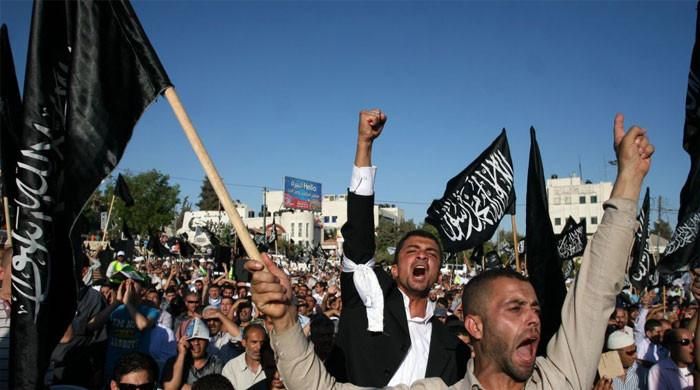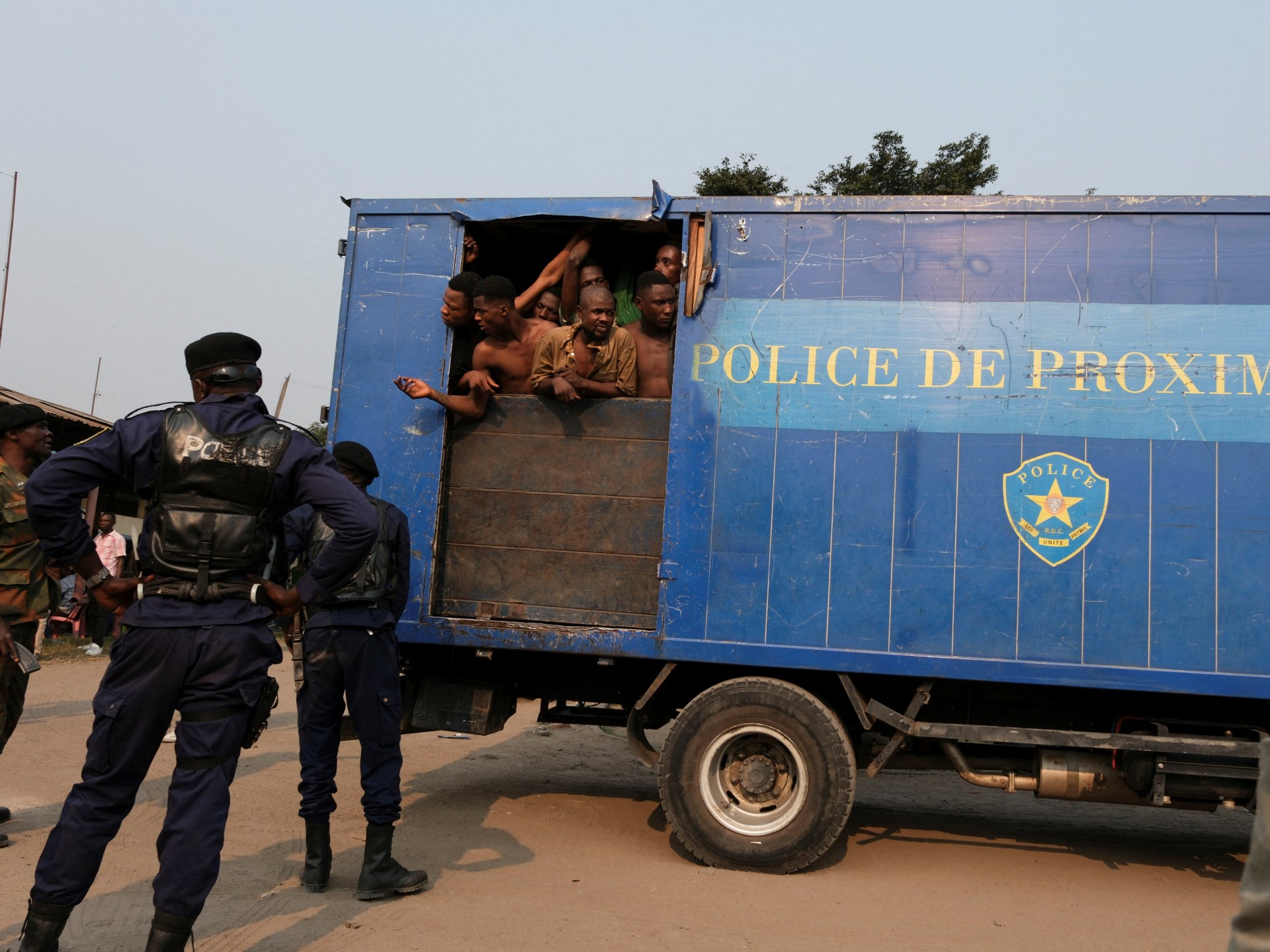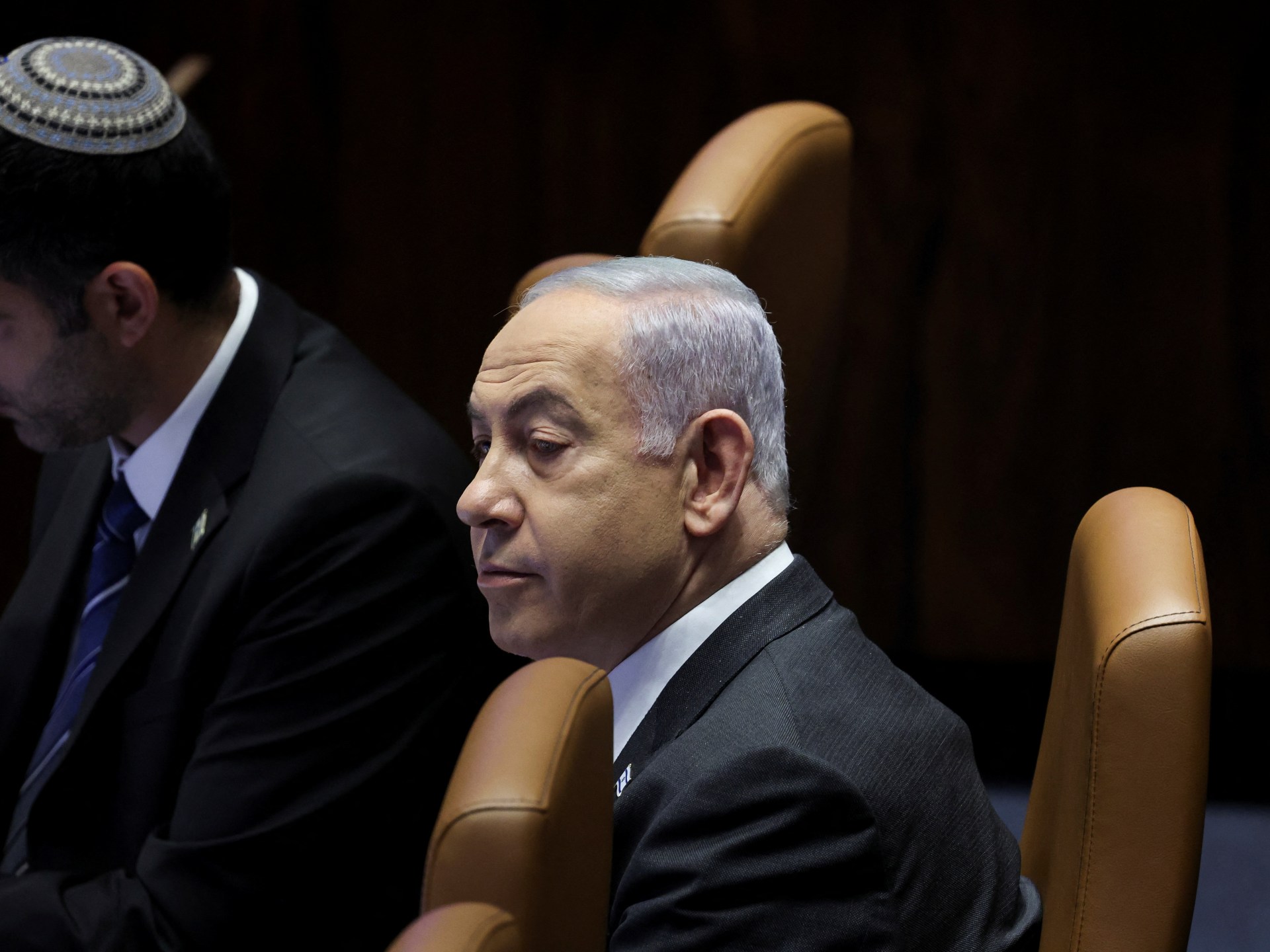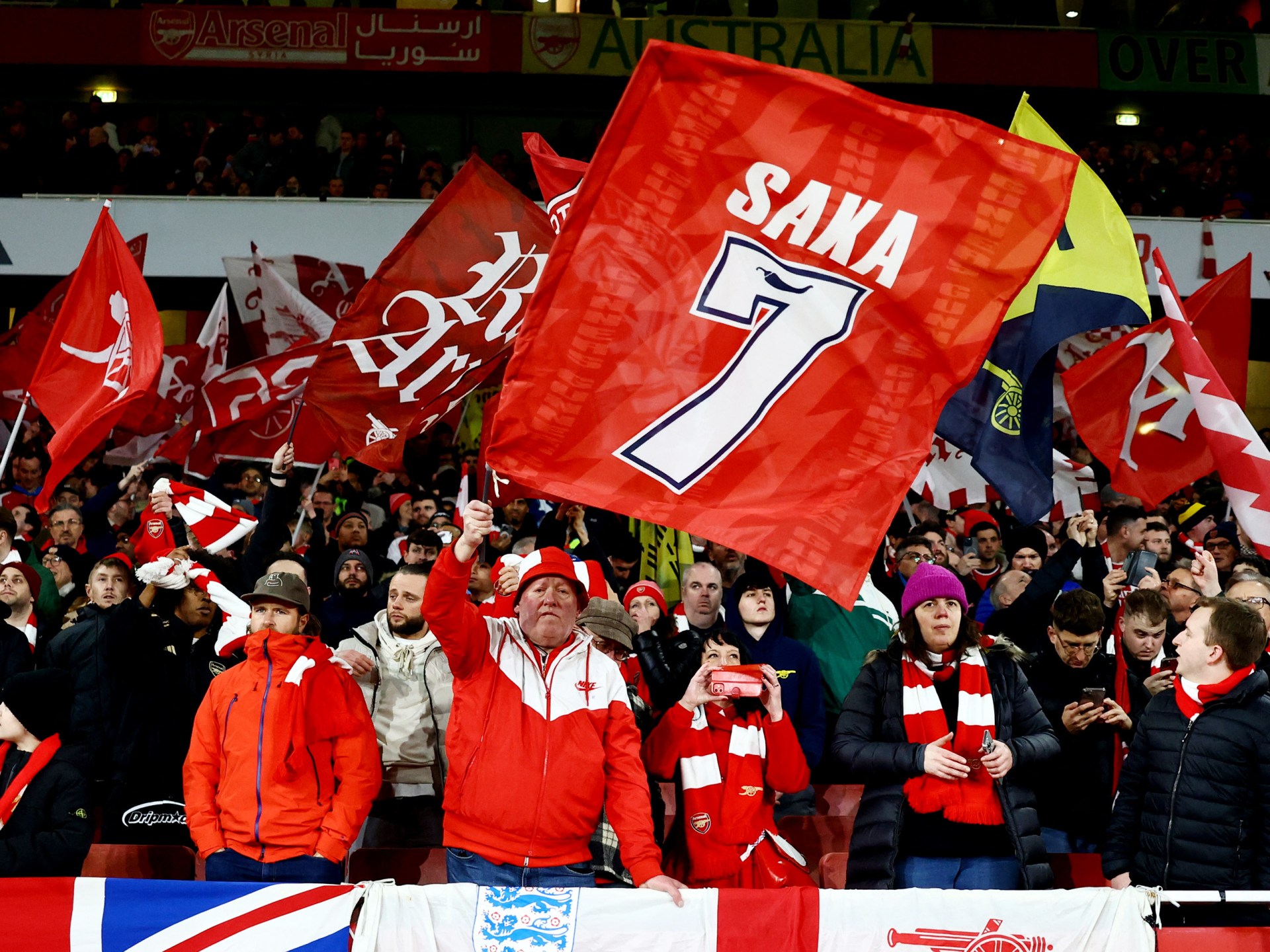The ban will come into force on January 19 pending approval by Parliament, according to the Ministry of the Interior.
LONDON: Hizb ut-Tahrir will be banned from organizing in the UK after the British government claimed the group is anti-Semitic and promotes hatred of Jews.
James Cleverly, the Home Secretary, has announced that the group, which is already banned in countries including Pakistan, Germany and Indonesia, will no longer be allowed to recruit or hold protests and meetings across the UK.
If approved by Parliament, the draft order presented on Monday will come into force on January 19. This means that belonging to a group, inviting support and displaying items in a public place in a way that raises suspicion of membership or support of the group will be a criminal offence.
Hizb ut-Tahrir was banned in Pakistan under Pervez Musharraf's government when the group called for his overthrow and campaigned against him in the UK, including recruiting attempts within the army.
In the UK, Hizb ut-Tahrir has thousands of middle-class followers. Its current leader is Dr Wahid Asif Shaida, British-Pakistani, who has been practicing in west London as a family doctor for 25 years.
James Cleverly, the Home Secretary, said: “Hizb ut-Tahrir is an anti-Semitic organization that actively promotes and encourages terrorism, including by praising and celebrating the atrocious attacks of 7 October. Outlawing this terrorist group will ensure that anyone who belongs to it and invites support will face consequences. “It will restrict Hizb ut-Tahrir’s ability to operate as it currently does.”
Certain statute-barred offenses are punishable by up to 14 years in prison, which a court may impose along with or in lieu of a fine.
Since the October 7 attacks by Hamas and Israel's subsequent military response, Hizb ut-Tahrir has not condemned Hamas, a group already banned in the United Kingdom, but has instead praised the attacks on Israeli citizens saying “yes This can be done by a resistance group, imagine what could be achieved with a unified response from the Muslim world.” He has called on Muslim countries to “recover their armies and go eliminate the Zionist occupiers.”
Dr Wahid has said that HT is not “extremist”, stating that the word was “pejorative” and had no agreed meaning. And he added: “For reasons of professional honesty I maintain a very clear line between my professional and political life.”
Based in Lebanon, the group operates in at least 32 countries, including the United States, Canada and Australia, with the “long-term goal of establishing a caliphate governed under Islamic law,” the Interior Ministry said.
The group has denied it was anti-Semitic, saying: “We do not support the Hamas group, but we support the people of Palestine. We do not encourage people to take similar actions, but rather we want a political change so that the resources of Muslim countries are used to liberate and rescue the besieged people of Palestine. Saying that Palestinians should be free from this brutal occupation is not a divisive statement.”
In 2003, some military officers were arrested in Pakistan for plotting a coup against Musharraf. HT leaders at the time, in recent years, told this journalist that Pakistan was their number one target because it was a nuclear country. HT leaders had also confirmed that some of the arrested officers were recruited while training at the prestigious British military academy Sandhurst.
In October 2009, the arrest of around 35 HT activists in the posh federal capital sent shockwaves across Pakistan for the mere fact that those arrested were not a madrassa-educated, stick-wielding, Osama-loving rabble and spit fire. -troublemakers.
Almost all of the detained activists are middle class, university graduates and belong to prestigious professions, including one linked to Pakistan's atomic agency and another working for USAID.
The rest were, among others, computer engineers, directors of educational institutions, businessmen, telecommunications engineers, students from different institutions and environmental scientists.
After Pervez Musharraf banned HT in Pakistan, following the arrests of military officers, he has resorted to operating more secretly and through fronts and false names.
In June 2011, five Pakistani army officers were arrested for having links to Hizb-ul-Tahrir (HT), the Islamic Liberation party.
During Pervez Musharraf's visit to the United Kingdom in September 2004, the party launched the “Stop Busharraf” campaign to remove Pakistan from “Musharraf's continued submission to the Bush regime” and held mass demonstrations outside the sites of his appearance. .
Musharraf was so angry at the near ambushes he suffered from HT members that he publicly rebuked the British government for doing nothing about HT extremists at home, but rather lecturing Pakistan on how to deal with religious extremists.
Active in more than 40 countries, HT has more than 2 million members worldwide, with Indonesia and Malaysia leading the way and Pakistan among the top five countries that contribute the main workforce to the party. The group is barely active in Pakistan after the ban, but is believed to have silent support groups.
The group is characterized by recruiting in educational establishments and has been so successful in its objective that today it is associated with the middle class, university graduates and prestigious professionals who make up its ranks.
In Britain, the majority of HT activists are of Pakistani, Bangladeshi, Indian, African and Arab descent.
Banned in Pakistan and many other Islamic countries, including the United States and some European countries, the group was considered the most influential and powerful in Britain, but the London attacks changed many things for the group. Since then, the group has seen many high-profile defections; Many of its professionals, most of them doctors and engineers of Pakistani origin, have joined other parties or become apolitical.
The radical party was originally founded in 1953 in Jerusalem by Taqiuddin al-Nabhani to unite Muslim countries under a Khilafah government, governed by HT's medieval interpretation of Islamic law and the caliphate. Established in Britain about 30 years ago by Palestinian ideologue Fuad Hussain, leadership of the HT fell to Salafist preacher Omar Bakri Muhammad, the radical Arab cleric who fled Britain after the 2005 terror attacks.











